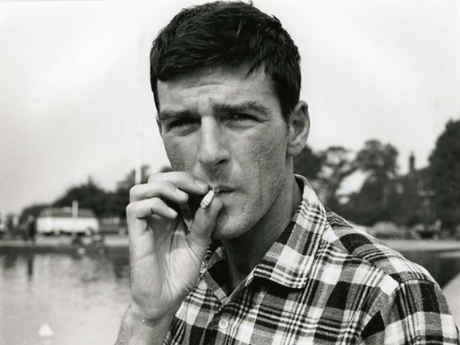Tributes
Eavan Boland on Thom Gunn

I knew of Thom Gunn almost as soon as I began writing poetry. His name was a presence, his cadences still more so. Somehow, in the muddle of disillusion and self-defense which was post-war British poetry, his wonderful first book took root. It was called Fighting Terms. It contained twenty or more poems, written in an odd, abrasive tone. The poems were funny and dense and thematic. The themes were sex and urbanity, in both senses of that word. One of the poems, "Carnal Knowledge," became a sudden classic—a splendid charade of music and attack, canvassing attitudes of deception and isolation. It was quoted and re-quoted by the Irish poets I knew all through the sixties.
But I could never have understood as a young poet what I came to understand later: that Thom Gunn, all by himself, was a unique register of the integrity and isolation of a poet. It was easy to misunderstand his poetic progress. From my own childhood in England, I think I have some instinct for the country he left in the nineteen-fifties: the gritty towns, the rationing, the rain, the anti-intellectualism, the lack of resources might have looked worth leaving. In fact, he never left them. He brought that wayward gift for being an island maverick and added it to the culture of the West Coast. He made a wonderful, unusual arc between rootedness and experiment, between being the outsider and having insider access. Few poets in our time have been as deeply nourished by tradition and as lovingly open to change.
I understood all this better when he published The Man with Night Sweats. The project of this book, published in 1992, has a magical imaginative symmetry with his early work, with those first blunt and thumping stanzas of Fighting Terms: In poem after poem Gunn returns to the iconic images of his early poems—to the soldiers, the lovers, the emblems of male strength—and rewrites them as images of suffering, of bodily weakness, of the ravages of disease and the cost of sexual pleasure. The beautiful coherence of the book is in the act of imaginative rescue, cast in mythic reversal: from strength to weakness, from glory to humiliation.
In Autumn 2003, in what must have been his last university appointment, Thom Gunn came to the Stanford Creative Writing Program as the Mohr visiting poet, and taught there for the quarter. Ken Fields, Simone di Piero and myself had wanted nothing so much as to have him there. They were his friends. I was not. But somehow, between us, we managed to persuade him, being careful to arrange transport for him from San Francisco to Stanford. He wrote me a note, to say he would enjoy being driven. "I will feel like a movie star," he said. Indeed, he was a star. Never flattering in the classroom, he made a profound impression on his lucky students. He was gracious, candid, funny, and always kind in the small dealings which make up the day-to-day presence of a writer in any institution. I was always struck by how little America had touched his accent: the old flat tones of Kent were still there. And yet how deeply it had written itself into his mind, in everything from his love for San Francisco fog to his community with West Coast writers.
Thom Gunn made light of his journey, as a poet, as a man. But it was a considerable one, which found spaces and opened them for others. I treasured all and any of our brief conversations about his English origins, his American arrival, and knew I was hearing about a progress which would never happen again, at least not in that way.
Originally published in Crossroads, Fall 2004.


